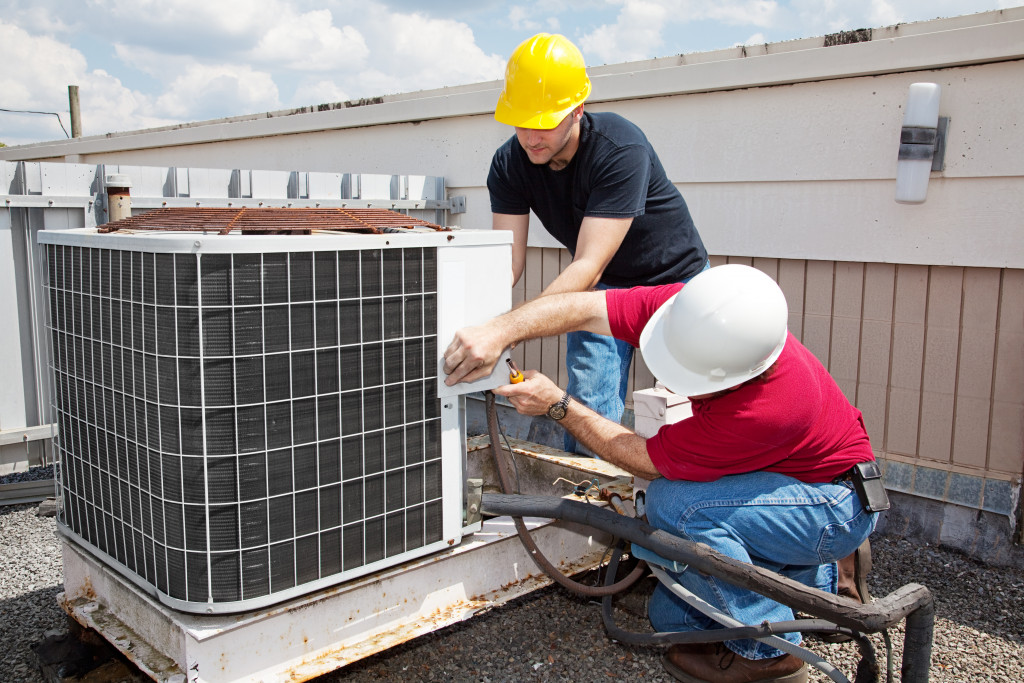- High capital investment is necessary to start an HVAC business.
- The global HVAC market is expected to reach $309 billion by 2028.
- Regulatory compliance, intense competition, and the industry’s seasonal nature can all present risks.
- A website and staying informed about industry trends are essential for success.
- An emergency fund and a plan for unexpected events can help entrepreneurs succeed in this competitive market.
Starting a heating, ventilation, and air conditioning (HVAC) business has tremendous potential for growth and profit. However, being an entrepreneur in the HVAC industry is full of risks. According to the U.S. Bureau of Labor Statistics, HVAC technicians and businesses experience more workplace injuries and illnesses than other industries. Therefore, it is essential to identify and mitigate these risks as much as possible to ensure a successful HVAC business.
The Worldwide HVAC Industry
The global HVAC market is expected to reach $309 billion in 2028. There’s a surge in demand for HVAC services due to an increase in energy efficiency standards and the adoption of smart HVAC systems. There is also a wide range of variables that make it difficult to predict the future of the industry. Therefore, it’s essential to understand the critical risks associated with starting a business in this competitive market.
Risks Associated With The HVAC Industry
If you want to be competitive in the industry, you must know the risks behind it. Here are some of those risks.
High Capital Investment
Starting an HVAC business can be overwhelmingly expensive. The business owner must have an impressive portfolio of equipment to handle various jobs for their clients, stock enough inventory to fulfill customer demands, rent an office property in a good location, pay bills and employees, and market their business to get more clients.
This might mean taking out a large loan or finding investors to help fund the startup. Starting a business in a slow economy may mean no one is interested in financing a new enterprise. Therefore, the entrepreneur must plan their finances well.

Intense Competition
Competition within the HVAC industry is fierce. Many established HVAC companies with excellent reputations perform well and are known for their quality services. The competition may also include handymen or rogue HVAC technicians who perform subpar work at low prices, affecting new business prospects. Entrepreneurs must conduct thorough market research to identify their target market and establish a competitive edge as a startup. They must have a marketing strategy that sets them apart from their competitors.
Regulatory Compliance
Government agencies strictly regulate the HVAC industry. Hence an HVAC entrepreneur must ensure that their business complies with all federal, state, and local regulations. These regulations include licensing, insurance, taxes, certifications, permits, environmental impact, and safety standards. Failure to comply with these regulations could lead to heavy fines, the closure of the business, and even litigation.
The Seasonal Nature of HVAC Business
The weather affects the HVAC industry, so it is primarily seasonal. During warmer months, the demand for Air conditioning repair is high, but the demand for heating is low. During the winter, the demand for heating is high, but the demand for Air Conditioning is low. Entrepreneurs must prepare for the seasonal nature of the business, which may mean fluctuating on and off-seasons/workload. They must have a cash-flow strategy to help with potential challenges and expenses arising from a seasonal business.
Labor Shortage
With the rise in demand for HVAC services, there is a shortage of skilled HVAC technicians. While starting the business, hiring skilled and experienced workers can be a significant challenge. Additionally, a lack of skilled technicians may cause a delay in service delivery. It may restrict a new business from taking jobs and retaining existing clients. The entrepreneur must have strategies to ensure Employee Retention, such as incentivizing or providing training and development programs.
How to Get Ahead in The Industry
Dealing with the risks above is one way to keep your business afloat. However, if you want to get ahead, consider these options:

Build a Website
The majority of consumers nowadays are in the digital space. Hence, online presence is essential for success in today’s competitive market. Building a website that showcases your services and displays customer reviews and ratings can increase your visibility to customers. If you don’t have the time to do this, consider hiring professional website designers to do it for you. Visit websites like thelonecrowd.com to see what they can offer. Oftentimes, their experience can lead to better outcomes.
Stay Informed
HVAC technology constantly changes, and staying up-to-date with industry trends is critical to success. Keep yourself informed of new developments by reading industry magazines, attending HVAC conferences, and networking with other professionals in your field. This will ensure you have an advantage over your competitors who are not as knowledgeable as you are.
Furthermore, understanding regulations can help entrepreneurs avoid any legal issues arising from non-compliance. Confirm all licensing requirements before starting a business and regularly review regulatory changes to remain compliant.
Be Ready For Anything
Starting an HVAC business requires dedication and hard work, like any other business venture. Therefore, it’s essential to prepare for any problem that might arise. Have an emergency fund, and create a plan for unexpected events like equipment breakdown or financial issues.
Finally, remember that starting a business in the HVAC industry is challenging, but it can also be rewarding. Preparing and following best practices will help you succeed in this competitive market.
